What are the Best Fruits to Plant in Summer at Home?
Finding the best fruit to plant in summer at home was not as easy as I thought. Some require extensive care, others are prone to pests, and lots are just not simple & quick enough to grow.
That’s why I created a list of the 10 Best Fruit to Plant in Summer at Home!
This ultimate guide will give you the best fruit to plant in summer why you should grow them, and even how to grow them.
Read THIS Before Growing Fruit in the Summer at Home
Knowing what hardiness zone you live in is in is critical to understanding the best fruits that can be grown.
It can be the difference between your fruit orchard thriving and providing a bountiful yield or producing nothing and maybe even dying.
Below is a hardiness zone map to understand better which one you are in.
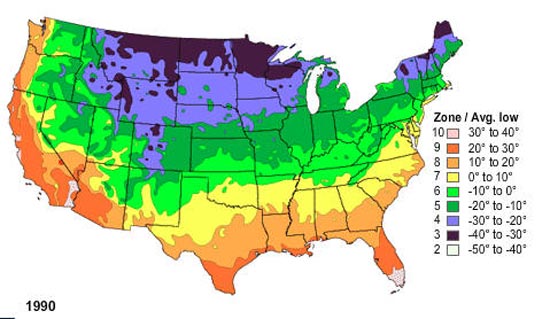
10 Best Fruit to Plant in Summer at Home
#1. Apple Tree
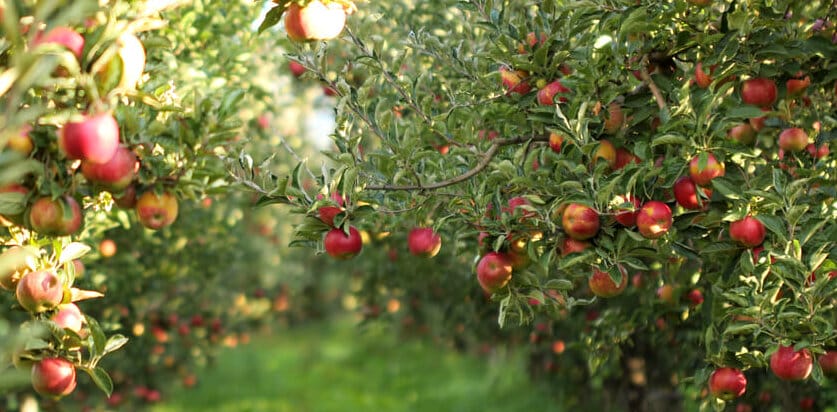
Popular Varieties: Honeycrisp, Red Delicious, Granny
Why Plant Apple Trees in the Summer?
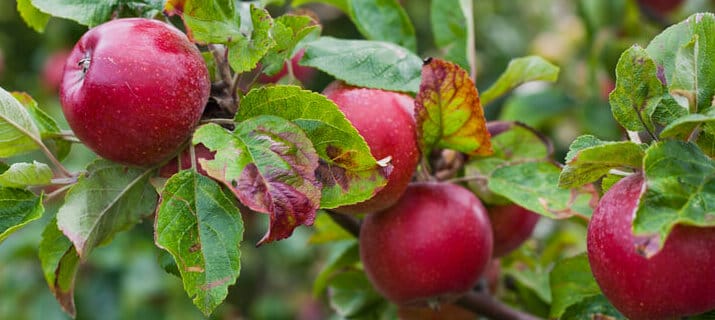
Cold Hardy:
- Apple Trees thrive in cold spring and cooler fall months. Unlike other fruits, flowers and fruit can grow even when there is snow or frost late into the spring.
Easy to Grow:
- Apple trees may be the easiest fruit to grow. You do not need to fertilize it, don’t need to water it, can be planted in any soil, and needs very little pruning if any.
Perfect for ANY Yard:
- Apple Trees are perfect for any gardener’s yard. If you have a lot of space you can plant numerous apple trees. If you have a little space you can plant your apple trees in pots. And regardless of the climate or soil you can plant them just about anywhere in your yard.
Heavy Harvest:
- Out of all the fruit trees on this list, apple trees have one of the heaviest harvest. Between late August through November you can pick more apples then you’ll be able to eat.
THESE Could Harm Your Apple Trees
Pests:
- Deer, Rabbits, & Squirrels LOVE Lettuce. If left unprotected these pests will eat your fruit before it can even fully grow.
Insects:
- Out of all the fruit trees on this list, insects are most likely to attact apple trees. Whether it’s Japanese Beetles or Aphids, you will constantly have to spray and care for your apple tree to prevent insect infestation
Disease:
- Again, out of all the fruit trees on this list, Apple Trees are most prone to disease. Blight & mold are just two of the diseases that can attack, harm, and sometimes kill your fruit trees in the spring or summer.
Additional Resources
Learn How To Grow Apple Trees HERE
#2. Pear Tree
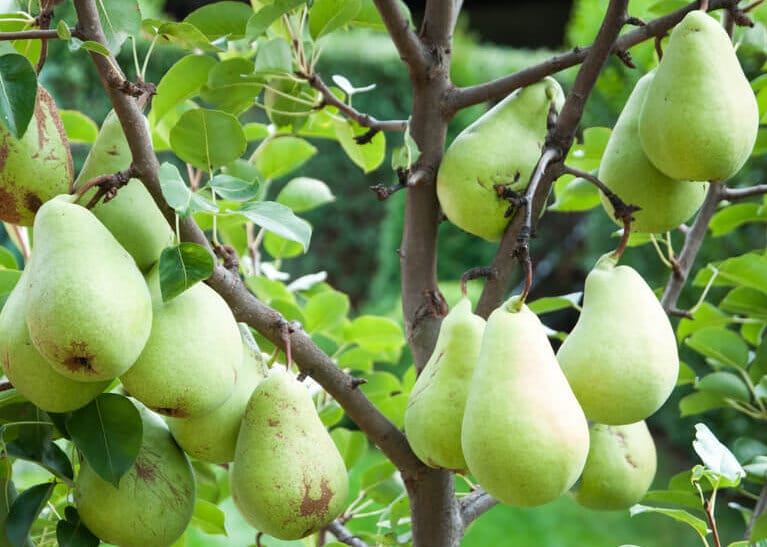
Popular Varieties: Barlett, Kieffer, Anjou, Bosc
Why Plant Pear Trees in Summer?
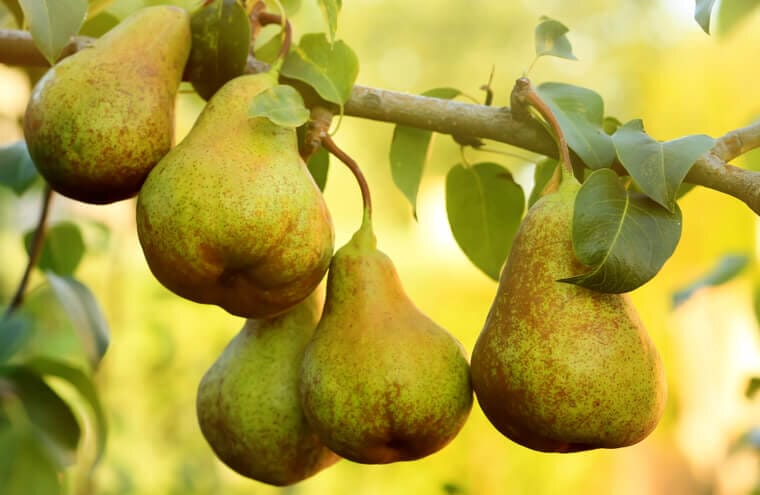
Cold Hardy:
- Pear Trees is another hardy fruit when it comes to cold. Pears are a perfect compliment to apple trees, blooming earlier and bearing fruit earlier in the summer.
Heat-Resistant:
- Pear Trees is not only a great tree that is cold-hardy but also does amazing in droughts, high heat, and humidity. This makes it perfect to plant anywhere in your yard, regardless of the amount of sunlight it receives.
Perfect in Pots:
- If there is any fruit that can be grown in gardening pots, it’s Pear Trees. This is one of the most adaptive fruits, making it perfect for beginner gardeners.
THESE Could Harm Your Pear Trees
Insects
- Like many other fruits, insects like aphids will attack and infest your pear trees. Unlike Apple Trees that can recover quickly, Pear Trees typically won’t.
Wet Conditions
- While pear trees do great in heat and cold, they can struggle with wet conditions. If the ground becomes too wet over winter and spring then there is a chance that root rot will happen, harming or killing your tree.
Additional Resources
Learn How To Grow Pear Trees HERE
#3. Plum Tree
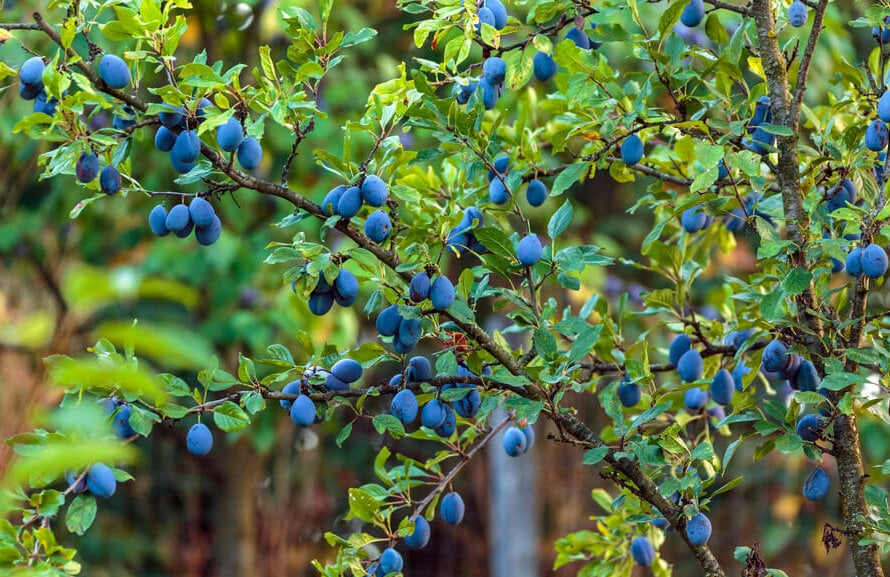
Popular Varieties: Damson, Fench, Friar, Japanese
Why Plant Plum Tres in Summer?
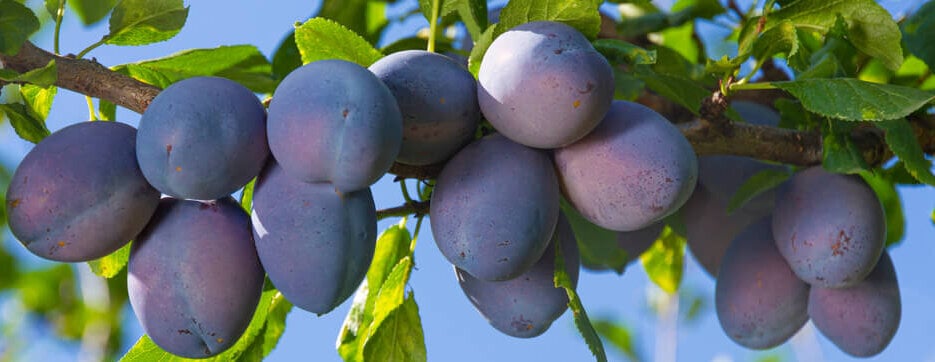
Thrives in heat:
- While most fruit trees tolerate heat, plum trees thrive in it. This early summer fruit-producing tree will grow quickly with more plums when it has a warmer winter and spring.
Insect & Disease Proof:
- Plums are extremely hardy. Unlike every other fruit tree on this list, plum trees are resistant to almost all insects and every disease, making it the perfect fruit tree to grow in the ground.
Perfect for Small Spaces:
- Apple, Pear, & Cherry Trees grow quite large. If you don’t have a big backyard this can pose a problem. But you don’t have to worry about this with plum trees, as they won’t grow more than 8 to 10 feet high and 6-8 feet wide.
THESE Could Harm Your Plums Trees
Pests:
- Deer, Rabbits, & Squirrels come out of winter and become hungry in spring. One of the first plants they eat is plums. Whether protected or unprotected pests pose a risk to growing plums.
Wet Conditions:
- Like pear trees, plum trees don’t do well with wet conditions. It is recommended to plant this type of tree in an area of your yard with well-draining soil and long periods of direct sunlight.
Additional Resources
The biggest tip for having success growing plum trees is to prune them. Plum trees will take 5-6 years to bear fruit, but pruning your tree will promote tree growth and more plums.
#4. Peach Tree
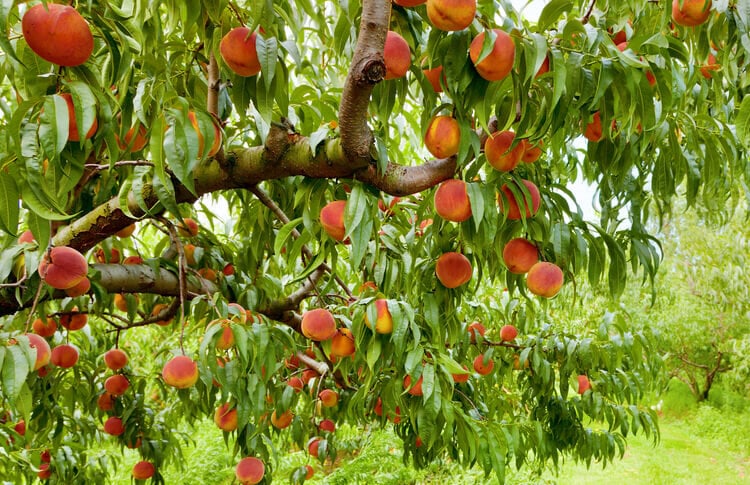
Popular Varieties: Redhaven, Reliance, White, Sunhaven
Why Plant Peach Trees in Summer?
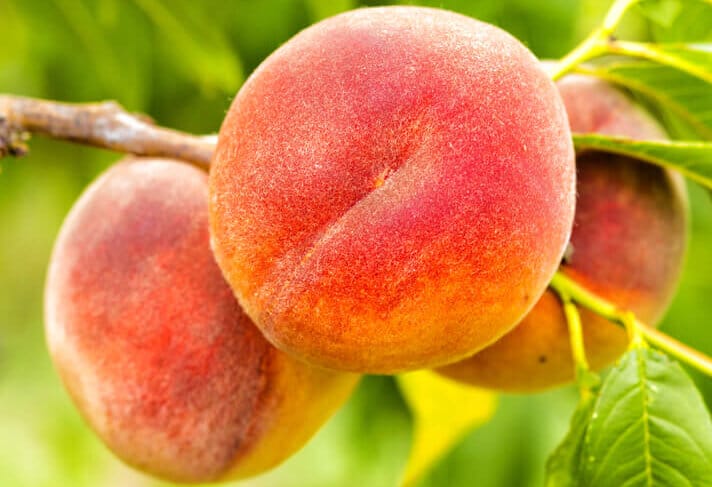
Thrives in the heat:
- The hotter, the better. Unlike apple, cherry, pear, and plum trees that tolerate heat, peach trees will actually do better the hotter it gets. That means the hot and humid summers are perfect for peach trees bearing more fruit.
Great for Vertical Gardening:
- Most fruit trees grow high and wide, but very few just grow high. Peach trees are the only type of fruit tree that has varieties that can grow 10 to 15 feet high and only 2 to 3 feet wide.
Quick Growing:
- Out of all the fruit trees on this list, the Peach Tree is the quickest growing fruit tree. Not only this, but most Peach Trees will actually bear fruit within 1 to 2 years after planting.
THESE Could Harm Your Peach Tree
Cold:
- Peach Trees do not tolerate cold weather well. While some varieties can survive cold weather, most will die if the winter temperatures drop consistently below 10 degrees Fahrenheit.
Diseases:
- Like many other fruit trees, Peaches are prone to diseases such as blight, mold, etc. Not only will this happen during early spring during wet conditions, but can also continue throughout summer and even fall.
Additional Resources
For best success growing Peach Trees, you should plant them next to other trees in the same family like nectarines and apricots. Keep them in a well-draining and full-sun area of your yard.
#5. Blackberries

Popular Varieties: Triple Crown, Black Diamond, Arapaho
Why Plant Blackberries at Summer?

Cold Hardy:
- Blackberries are another type of berry plant that is cold-hardy. Blackberries are a perfect complement to blueberries and raspberries, blooming mid-summer to early fall.
Heat-Resistant:
- Blackberries are not only a great plant that is cold-hardy but also do amazing in droughts, high heat, and humidity. This makes it perfect to plant anywhere in your yard, regardless of the amount of sunlight it receives.
Easy to Grow:
- Berries are not always the easiest plant to grow for beginners. Blackberries though are incredibly easy. They don’t need much care, can grow in any type of soil, and yields a large harvest with little work.
THESE Could Harm Your Blackberries
Deer & Birds:
- Like many other berries, deer and birds will eat the flowers of your blackberry bush and even the berries themselves if not properly protected.
Wet Conditions:
- While blackberry bushes do great in heat and cold, they can struggle with wet conditions. If the ground becomes too wet over winter and spring then there is a chance that root rot will happen, harming or killing your tree.
Additional Resources
Did you know that blackberry bushes are actually vines that can quickly spread and are considered great border plants for your yard?
#6. Cherry
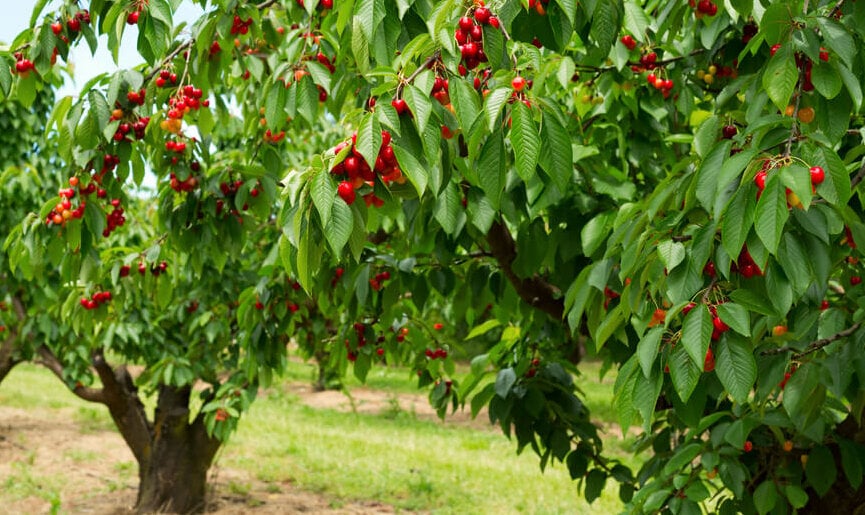
Popular Varieties: Bing, Van, Montmorency
Why Plant Cherry Trees in Summer?
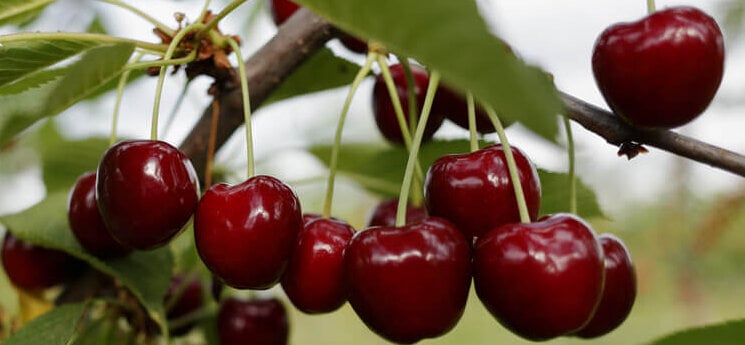
Thrives in the heat & cold:
- Cucumbers are another hardy fruit. Some varieties can be grown in cold weather and some can be grown in warmer weather.
Lots & Lots of Harvest:
- Cherries produce the largest harvest out of all the fruit trees on this list. While cherry trees don’t grow as tall as other trees they can sometimes yield up to 50 pounds of fruit in a season.
Amazing Cross-Pollinator:
- If you want a fruit tree that acts as a cross-pollinator then look no further than the cherry tree. It does great with crabapples and apple trees to name a few.
THESE Could Harm Your Cherry Trees
Birds:
- These pests will generally not harm your actual cherry tree. What they will do though is immediately eat cherries if you do not protect them with netting.
Cold & Wet Conditions:
- Cherry Trees also will quickly die if conditions are too wet or if the winters get too cold, making this one of the most difficult trees to care for every year.
Additional Resources
To have the most success growing cherry trees you should constantly prune, mulch, spray for disease and insects, and protect them against garden pests.
#7. Raspberries

Popular Varieties: Popular Varieties: Anne, Caroline, Tulameen
Why Plant Raspberries in Summer?

Loves heat:
- Raspberries love the heat. The hotter the beat. This makes this berry plant perfect for anywhere. And even better is that it requires little water, which means more time to spend on your other plants.
Large Yields:
- If you want a large yield of berries for a small plant then look no further than raspberries. One plant can yield an entire summer’s worth of edible raspberries. This makes raspberries the perfect berry plant for gardeners to grow.
Perfect for Small Spaces:
- Blackberries and blueberries can grow quite large. If you don’t have a big backyard this can pose a problem. But you don’t have to worry about this with raspberries and some types only grow 2 feet tall and 2 feet wide!
THESE Could Harm Your Raspberries
Insects
- Raspberries are the most insect-prone type of berry plant you can grow. Many insects can attack them, but the most dangerous are aphids and caterpillars. Make sure to apply the proper pesticide to protect your raspberries or they will die, as quickly as a day.
Wet Conditions
- Like the other berries on this list, raspberries don’t do well in wet conditions. It is recommended to plant this type of tree in an area of your yard with well-draining soil and long periods of direct sunlight.
Additional Resources
If you want to have the most likelihood of success growing Raspberries it is recommended to prune, apply pesticide, and plant your raspberry plant with peat moss!
#8. Strawberries

Popular Varieties: Royal Sovereign, Albion, Rosie
Why Plant Strawberries in Summer?

Thrives in Heat:
- The hotter, the better. While other berries and fruit plants tolerate heat, strawberries will actually do better the hotter it gets. That means the hot and humid summers are perfect for strawberries bearing more fruit.
Great for Vertical Gardening:
- Most berries grow high and wide, but very few just grow high. Strawberries are the only type of berry that can grow in a gardening pot, but also in a vertical garden.
THESE Could Harm Your Strawberries
Cold:
- Strawberries do not tolerate cold weather well. While some varieties can survive cold weather, most will die if the winter temperatures drop consistently below 10 degrees Fahrenheit. You should always layer hay, leaves, or burlap over them in the winter.
Diseases:
- Strawberries are more prone to diseases than other berries. Root rot is a typical disease that can destroy them, along with other types of mold and fungus. To help minimize the chances of these diseases it is recommended you plant your strawberries in a well-draining, full-sun area of your fruit garden.
Additional Resources
When planting strawberries you should always protect them with fencing or bird net to protect the flowers and berries from birds, chipmunks, and squirrels.
#9. Mulberry Tree
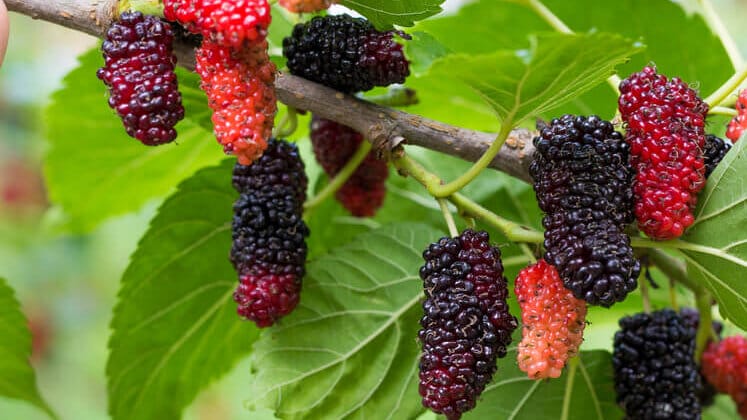
Popular Varieties: Black, White, Red
Why Plant Mulberry Trees in Summer?
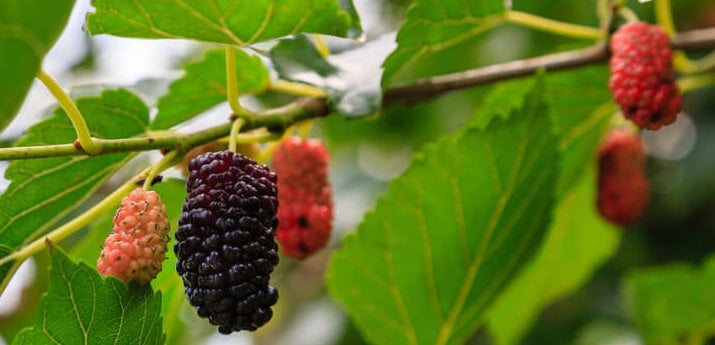
Thrives in Almost Any Condition:
- While you may not be very familiar with the Mulberry Tree, it is an excellent choice to grow in almost any condition. You can plant it with other trees, by itself in a field, among weeds, or even in a garden and it will quickly grow and bear fruit.
Small Yards:
- The mulberry tree is so versatile because of its size that you can plant it anywhere. Whether it’s in a small space next to your house, in the corner or your garden, or even in a gardening container, the mulberry tree is perfect for all fruit tree growers.
THESE Could Harm Your Mulberry Trees
Garden Pests:
- When growing mulberry trees you will need to protect them from birds. While birds won’t harm the tree itself they have been known to quickly devour the fruit before they even ripen.
Additional Resources
Mulberry trees will grow plenty of fruit by themselves, but to have four to five times the amount of mulberries you should plant them next to another type of mulberry tree to promote cross-pollination.
#10. Blueberries

Popular Varieties: Bluecrop, Bluejay, Duke, Pink Icing
Why Plant Blueberries in Summer?
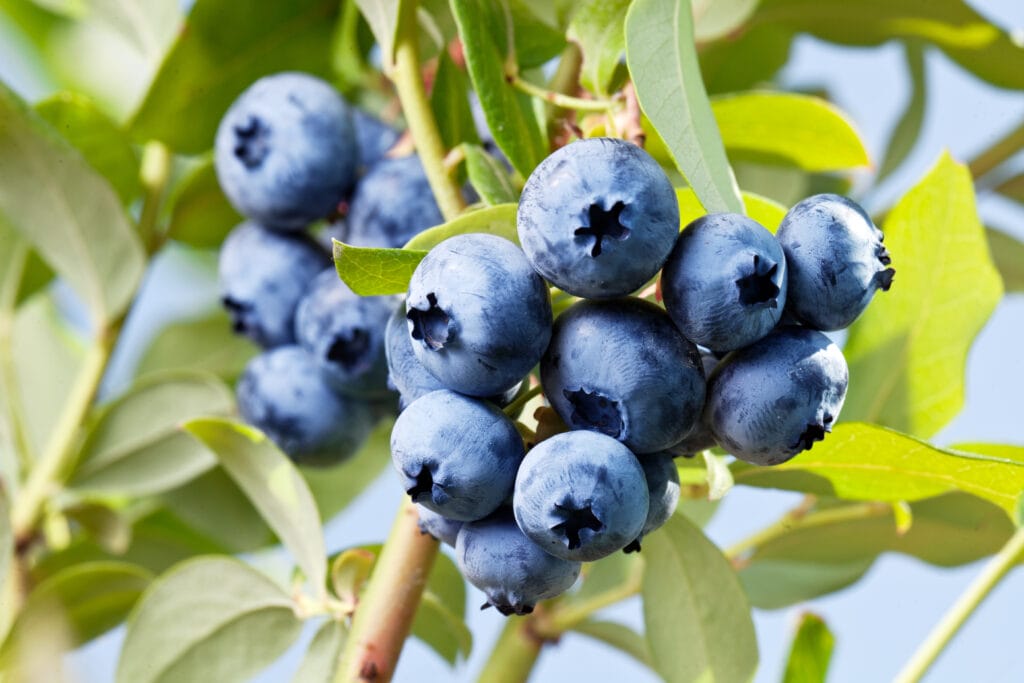
Cold Hardy:
- Blueberry bushes thrive in cold spring and cooler fall months. Unlike other fruits, flowers and berries can grow even when there is snow or frost late into the spring.
Perfect for ANY Yard:
- Blueberries are perfect for any gardener’s yard. If you have a lot of space you can plant numerous blueberry bushes. If you have a little space you can plant smaller types. And regardless of the climate or soil, you can plant them just about anywhere in your yard that receives full sun, you just may need to add peat moss for a better yield
THESE Could Harm Your Blueberry Bushes
Disease:
Additional Resources
Learn How To Grow Blueberries HERE
Common Growing Factors of Best Fruit to Plant in Summer
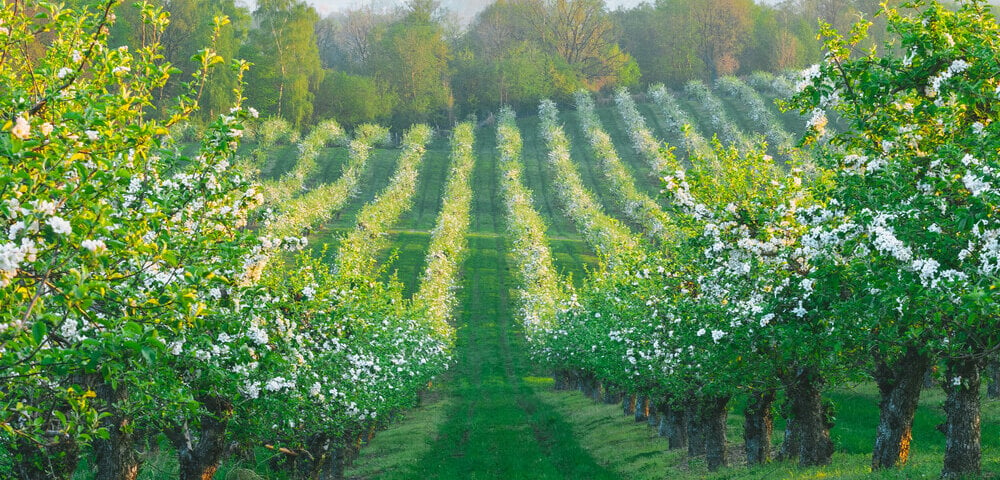
As a reminder, the below factors are common for the Best Fruit to Plant in Summer
- Thrives in Heat & Drought
- Thrives in Cold
- Can Grow Anywhere in your yard
- Hardy against Pests & Insects
- Require little maintenance
- Bear heavy fruit